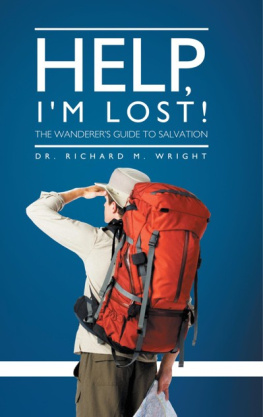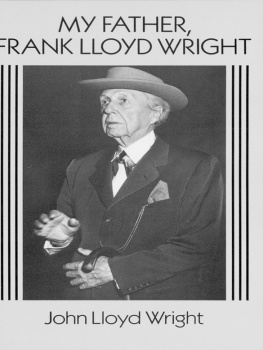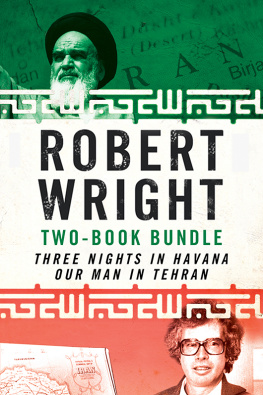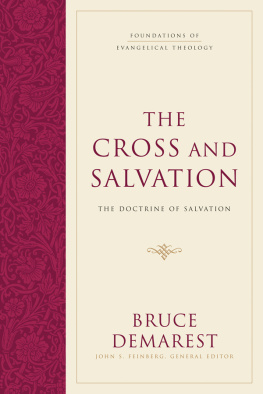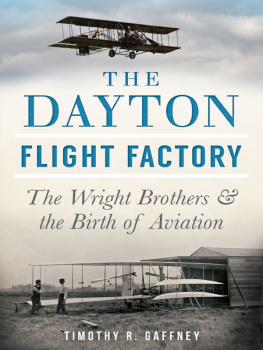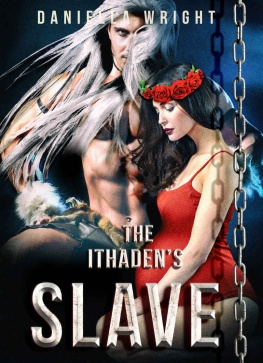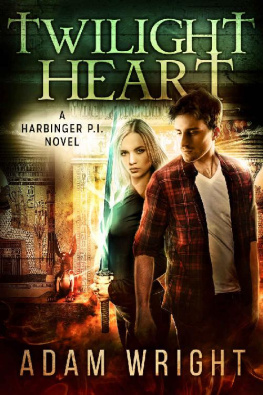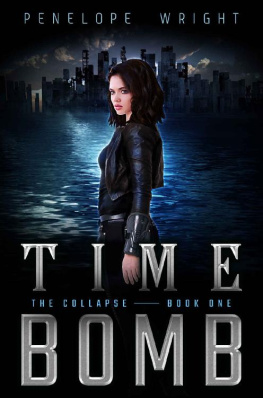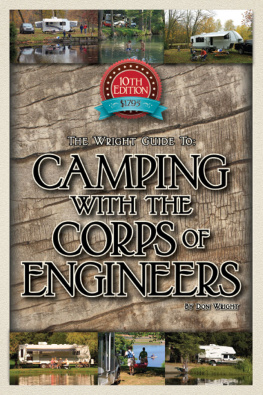Published by Louisiana State University Press
www.lsupress.org
Copyright 2020 by Louisiana State University Press
All rights reserved. Except in the case of brief quotations used in articles or reviews, no part of this publication may be reproduced or transmitted in any format or by any means without written permission of Louisiana State University Press.
DESIGNER: Michelle A. Neustrom
TYPEFACE: Adobe Caslon Pro
Jacket illustration courtesy Library of Congress.
LIBRARY OF CONGRESS CATALOGING-IN-PUBLICATION DATA
Names: Wright, Ben, 1983author.
Title: Bonds of salvation : how Christianity inspired and limited American abolitionism / Ben Wright.
Description: Baton Rouge : Louisiana State University Press, [2020] | Series: Antislavery, abolition, and the Atlantic world | Includes bibliographical references and index.
Identifiers: LCCN 2020013610 (print) | LCCN 2020013611 (ebook) | ISBN 978-0-8071-7389-3 (cloth) | ISBN 978-0-8071-7451-7 (pdf ) | ISBN 978-0-8071-7452-4 (epub)
Subjects: LCSH: Antislavery movementsUnited StatesHistory19th century. | Slavery and the churchUnited StatesHistory19th century. | SlaveryUnited StatesHistory19th century.
Classification: LCC E441 .W926 2020 (print) | LCC E441 (ebook) | DDC 973.7/114dc23
LC record available at https://lccn.loc.gov/2020013610
LC ebook record available at https://lccn.loc.gov/2020013611
ACKNOWLEDGMENTS
T HIS PROJECT COULD NOT have been completed without considerable help from colleagues, friends, family, and a number of generous institutions. Research for the project relied on grants from the Andrew W. Mellon Foundation, Virginia Historical Society, Historical Society of Pennsylvania, Library Company of Philadelphia, Massachusetts Historical Society, Quaker Collection at Haverford College, Filson Library, William L. Clements Library at the University of Michigan, the American Antiquarian Society, Rice University, and the University of Texas at Dallas. These funds enabled me to connect with a number of exceptional librarians and archivists. Special thanks to the professionals at each of these institutions as well as at the Wilson Library at the University of North Carolina, Friends Library at Swarthmore College, Presbyterian Historical Society, Maryland Historical Society, Library of Congress, the Congregational Library and Archives, Widener Library at Harvard University, Boston Public Library, and Huntington Library.
This book began at Rice University under the supportive advising of John Boles. Johns enthusiasm for studying the past and his expectation of rigorous academic excellence set an example I will spend my career struggling to approach. Rebecca Goetz offered me an academic example of how I could explore questions that had long gnawed at my soul, namely how American Christianity reflects, reifies, and not-often-enough redresses racial inequality. Caleb McDaniels own scholarship on abolitionism continues to humble me, and if not for his singular kindness, would paralyze me with intimidation. Generous input from James Sidbury, Alida Metcalf, and Randall Hall likewise encouraged and improved my work.
While I was just a prospective graduate student, ohn Boles suggested that I would learn more from my graduate cohort than I would from the faculty. This proved true, and I am deeply grateful for the generous spirit of those colleagues and friends including Zach Dresser, Joe Locke, Andy Lang, Allison Madar, Sarah Paulus, Carl Paulus, Jim Wainwright, Luke Harlow, Wes Phelps, Sam Abramson, John Marks, Maria Montalvo, and many others. After leaving Rice, I found new cohorts that nurtured my work. Colleagues at the Abraham Baldwin Agricultural College, especially Russel Pryor and Alison Mann, demonstrated how scholarly excellence and deep engagement with students can be mutually enriching endeavors.
My colleagues at the University of Texas at Dallas stimulate me daily to read closer, imagine wider, and write clearer. Through generous offers to read my work, share their own, and keep me accountable through writing groups, this book has been enriched by Dan Wickberg, Natalie Ring, Eric Schlereth, Erin Smith, Kimberly Hill, Annelise Heinz, Ashley Barnes, Rosemary Admiral, Erin Greer, Kate Davies, and Anne Gray Fischer. The wider community of Dallas historians has been similarly invigorating. Ive been buoyed by learning from Stephanie Cole, Gregg Cantrell, Alexis McCrossen, Guy Chet, Todd Smith, Chris Morris, Edward Countryman, Blake Earle, Lizzie Ingleson, and many others. I found the energy to push myself across the finish line largely through an informal Skype-facilitated writing group with Emily Conroy-Krutz and Gale Kenny, both of whom shared their incisive expertise with gracious collegiality. Other scholars have aided my work through comments, conversation, encouragement, and friendship. Special thanks go to Nathan Jrmie-Brink, Lindsay Chervinsky, Christopher Jones, Nora Slonimsky, and Andrew Wegmann.
I first really felt a historian in 2013 when working with Richard S. Newman on his NEH abolitionism seminar for teachers held at the Library Company of Philadelphia. Rich and the dedicated educators enrolled in the seminar taught me much about the history of American abolitionism and why it must be studied and taught. In the intervening years, dozens of often long and always lively conversations with Rich helped me navigate the thorniest issues in this study. Richs friendship and mentorship have shaped my work and life even more than his essential scholarship.
I first committed to pursuing a career as a historian while an undergraduate at Bethel University. Among the many debts I owe Bethels generous and nurturing faculty is a particular thanks to Diana Magnuson for assigning Jim Stewarts Holy Warriors: The Abolitionists and American Slavery, a masterful work that transfixed and haunted me as a young student. It has been one of the privileges of my life to work with Jim on revising this book. Jims fierce faith in the project gave me much needed confidence. Moreover, Jims untiring approach to scholarship, activism, and organizing will stay with me for the rest of my career. Working with Historians Against Slaverythe collection of academics committed to contemporary abolitionist activism that Jim foundedintroduced me to a host of sharp scholars and dear friends including Stacey Robertson, Randall Miller, Matt Mason, and many others. Feedback from Jims series co-editors Richard Blackett and Ed Rugemer made this a much better book. The staff at Louisiana State University Press are wonderfully efficient, professional, and kind.
Portions of this work have been presented at a number of conferences, symposia, and seminars. I am grateful for all of these audiences, each of which offered thoughtful comments. Much of the third chapter was published in Beverly Tomek and Matthew J. Hetricks anthology New Directions in the Study of African American Recolonization (Gainesville: University Press of Florida, 2017). I thank the editors and readers of the anthology for their helpful comments.
This is a deeply personal book, fueled by my attempts to reconcile the inspiring piety and moral blind spots of the evangelical Christian community in which I was raised. The compulsion to understand and confront injustice comes from faith instilled in me by my parents, Gil and Kathi Wright. In ways they never expected, my parents moral integrity and insistence on finding value beyond the material led me to a life of historical inquiry. They have been my salvation in innumerable ways. The antiracist lives lived by my aunt and uncle, Karen Thomas and Tony Gaines, helped me recognize elements of white supremacy that my privilege would have kept invisible. Similarly, experiences with the activist community in Dallas have shown me the challenges and importance of agitating for justice. Reading Richard Allen, Maria Stewart, and William Lloyd Garrison while also organizing alongside Dan Sullivan, Marissa Ocampo, Jodi Voice Yellowfish, Kristian Hernandez, Nan Kirkpatrick, and others remind me that activism owes more to hard work than to ideology.



